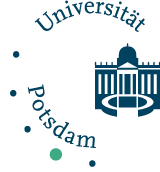Ehemalige Mitarbeiter
Prof. Dr. Herbert Döring (em.)
Kontakt:
E-Mail: h.doeringukabelmailpde
Kurzbiografie:
Prof. Dr. phil.; geboren am 30.9.1940. Studium der Geschichte, Politikwissenschaft und Germanistik mit Staatsexamen an den Universitäten Marburg/Lahn und Mannheim 1960-1966. Nachdiplomstudium der Sozialwissenschaften in Mannheim 1966-1970. Promotion 1972; Habilitation 1982. Auslandsdozentur 1977-1983 als DAAD Gastprofessor an der University of London (School of Slavonic and East European Studies). Danach Lehrstuhlvertretungen in Essen, Göttingen, Mannheim, und Stuttgart. 1990-1994 Projektleiter am Mannheimer Zentrum für Europäische Sozialforschung mit einem 18 Länder umfassenden Projektverbund zu Mehrheitsprinzip und Minderheitenrechten in den Parlamenten Westeuropas (Drittmittelförderung durch die DFG). Buchveröffentlichungen: Der Weimarer Kreis. Studien zum politischen Bewußtsein verfassungstreuer Hochschullehrer in der Weimarer Republik. Meisenheim 1975; Party Government and Political Culture in Western Germany, London 1982 (Hrsg. zusammen mit Gordon Smith); Großbritannien: Regierung, Gesellschaft und politische Kultur, Opladen 1993; Parliaments and Majority Rule in Western Europe, Frankfurt/New York 1995 (Hrsg.). Zahlreiche Beiträge in Sammelwerken und Fachzeitschriften.
This first comprehensive area study is not only geared towards the needs of academics, libraries, students, school teachers and the general public, it also satisfies the expectations of two quite different clienteles of legislative researchers. As such it serves not only as a reference compendium, but also gives in part I an exposition of the main tenets of contemporary "institutional theory" in legislative studies. It then proceeds in parts II to IV to map institutional structures and procedural rules crossnationally. Here the focus will be on devices that, on the one hand, favour majoritarian decision making and, on the other, give protection to the rights of minority parties and individual deputies, both at the government-opposition and at the cross-party level.
Both parliamentary practitioners and political theorists alike will find the reading rewarding for two reasons. Firstly, all descriptions study not just a few well-known cases but document the pattern of variation across all eighteen countries of Western Europe. Secondly, these descriptive cross-national accounts serve as the means to a more ambitious purpose in various chapters, particularly in part V. Assuming that - contrary to the conventional wisdom but in keeping with recent theorizing - parliamentary procedures may indeed affect political outcomes, some thought-provoking generalisations about possible correlations between parliamentary structures and the average number and type of bills passed per country are empirically checked in aggregate analysis across countries.
Das gesamte Buch kann hier (pdf) heruntergeladen werden.
Herbert Döring (Editor), Mark Hallerberg (Editor): Patterns of Parliamentary Behavior: Passage of Legislation Across Western Europe
This volume begins where the first Döring book of 1995 finished by considering what effects the rules had on legislative output during the same period. It addresses four distinct yet complementary research topics:
- the connection between a number of veto players and law production in West European parliamentary democracies
- the impact of closed versus open rules
- the effects of committee structure and organization on the degree of conflict or consensus on the procedure of passing legislation
- the importance of agenda setting and agenda control for the prevention of cycling across issues and the distribution of particular benefits of shifting and transient majorities.
Fundamental to this volume is the ability of the project group to fashion an original data set. As a consequence, this volume isable to ascertain the extent to which parliamentary procedures contributed to shaping policy output in this field during the1980s.
Dataset und Codebook
Dataset (SPSS 11.5), Codebook (pdf), Data base and sampling (pdf)



